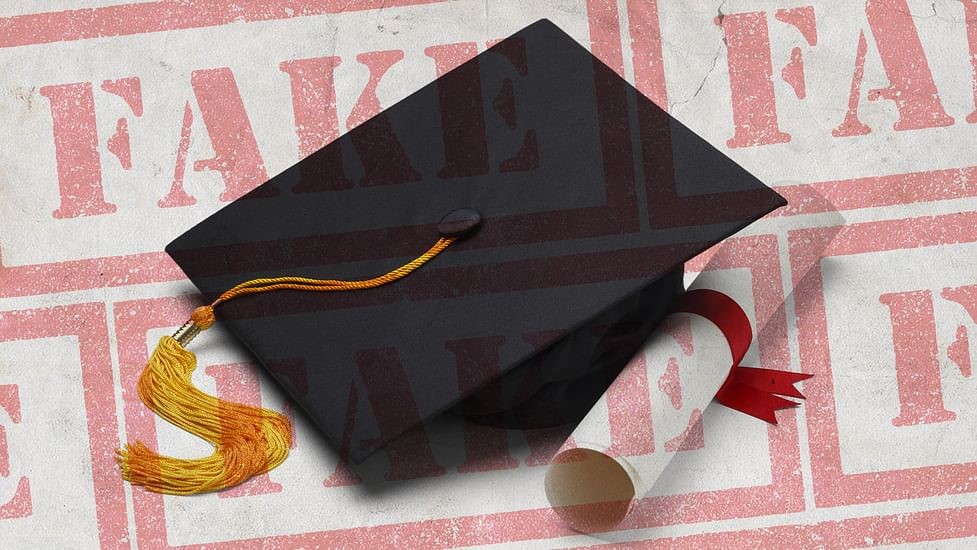By William Madouk Garang
Vice President for Service Cluster, Hussein Abdelbagi Akol has criticized security apparatus of failing to shut down unlicensed universities operating in the country though they were given green light.
Akol stated that security organs were given order since last year to close down all universities that are unlicensed by ministry of Higher Education as well as fake certificates but failed to implement the resolution.
“We gave orders that there are schools – there are universities that should be shut down but they did not do anything until the last problem of Kampala University which is arising now,” said VP Akol.
He also revealed that 13 people were arrested over academic certificates forgery, while others are on run. Mr. Akol added that some of the suspects are staff within the ministry of Education and the rests are outsiders.
“We have a problem after we set the exams and give the results, starting from [ministry] of general education there are people within the system who are also giving fake certificates to students,” Akol said during 6th Governors forum yesterday.
“Those [students], who failed went and clean their certificates and they [fakers] give them the certificates that they don’t deserve – and those people [who forged certificates] we take them very carefully,” he added.
He further said a lot of civil servants in both government and private sectors are holding ghost degrees and it’s a time to weed them out.
“We want them to be screened who will do that? We start our process but we want our security organs to back us up such that we can address all these issue – we have many things even in health sector, we have now many clinics and pharmacies which are opened without license,” he said.
For his part, acting undersecretary in the ministry of Higher Education, Dr. Job Alich Ayok said three universities are operating unrecognized by ministry of Higher Education because they didn’t seek approval or accreditation.
Dr. Ayok added that Kampala University – Juba branch, Christian University for Science & Technology and Mikese University in Yambio came to existence through letter of incorporation from justice.
“They decided to establish university but they never went to Higher Education to seek approval, to seek accreditation. So, that is why when the national council for Higher Education sat and look at how this universities came into existence they decreed that these universities must be closed,” Ayok noted.
“How did students enroll to those universities? They just announced – like what Ayii University is doing now and the students on their own went there. They did not go through the system of Higher Education established for admission,” he added.
According to him, establishing of higher learning institution – the initiator should seek approval from ministry and then undergo a thorough vetting which includes; land deeds, curriculum, infrastructure just to mention but few.
According to Higher Education, the only recognized universities are five public universities which are; University of Juba, Upper Nile University, Dr. John Garang Memorial University for Science & Technology, Rumbek University, Western Bahr el Ghazal University and Northern Bahr el Ghazal polytechnic college for public science.
While eleven recognized private institutions of higher learning are; Catholic University, Starford International University, Star International University, South University of Medicine, Science and Technology.
Others included: St. Mary’s College Emmanuel Christian College – Yei, Kuda University, African Zeal University – Lobonok, Episcopal University, Nile Theological College and Mary Help College (affiliated to Bahr el Ghazal University) – Wau.
This leaves the fate of hundreds of student staring from a potential crisis like the one that recently befell those of Kampala University.
In July 2022, a section of South Sudanese Students took Kampala University to a Ugandan court in Kampala after they failed to graduate.
But a high court in Kampala, Uganda ruled that Kampala University cannot graduate more than 900 students from the Juba affiliated campus who ought to graduate at the mother university in June 2022.
The ruling not only throws into disarray the aspiration of the over 900 students who had spent years and resources studying at Juba study center but also raises pertinent issues about how privately-owned universities and affiliate colleges operate in the country.





One Comment